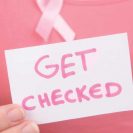Recently, I went on a road trip with my husband to attend a professional conference. I like road trips, whether I’m the passenger or driver. The route took us over two mountain passes, on winding roads, through spectacular mountain scenery. Because the trip was long, (about 8 hours), my husband and I shared the driving. He took the first part, and as we drove up out of the valley toward the first pass, I was relaxed, excited and anticipating a glorious day. That feeling lasted until the first time my husband went to pass a slower moving vehicle. As he signalled and went to pull out and around the car ahead, I panicked. Full-blown foot-through-the-floorboards-death-grip-on-the-dash-banshee-screaming panic. (Really. I did that.)
Fortunately, my husband is used to this reaction to his driving and doesn’t take it personally anymore. He calmly finished his manoeuvre, then said, “Feeling a bit anxious, are you?”
Fast forward to the trip home. I’m driving this time. I signal, pull out and pass a semi truck and an RV, whipping back into my own lane in front of the RV with room to spare. Not much, but enough. (This highway was one lane each way without a median – passing a vehicle meant pulling into the lane of oncoming traffic) I realized my husband was laughing, and when I looked at him, he said, “You just did exactly what I did, but I see you’ve managed not to panic.” I had to laugh as well. I hadn’t felt anxious at all. In fact, it was quite exhilarating – sort of like driving in Kuwait.
That started me thinking about the difference between the two situations. I don’t have a problem with my husband’s (or generally anyone’s) driving. He’s more than a ‘good’ driver, he’s skilled and experienced in all weather on all types of roads. Yet I couldn’t control my physical response to his decision to make a passing manoeuvre. When I did it, far from anxious, I felt excitement.
Weird.
That got me thinking about what anxiety/panic is. Someone once said to me years ago – “Anxiety is the act of imagining a future you don’t want, and freaking out about it now.” I had a bit of an “Aha!” as I considered that when I was driving, I assessed the situation, measured the risk and took action. I wasn’t worried about the outcome because I was in control. When my husband went to do the same thing, I couldn’t see that the opposing lane was clear, and I instantly jumped to a future I most definitely did. Not. Want. (Sudden death). This jump to a bad, bad, future happened without a conscious choice on my part. At the speed of light, poof! I’m in full blown panic mode. For no other reason than that I was not in control. It wasn’t me that had made the risk assessment, therefore a thoroughly bad outcome was possible and my hyper-vigilant brain decided I was in danger.
Without my conscious permission.
If you struggle with anxiety, give this some thought. When are the times that you feel panic, and when are the times you don’t, even though the activity may be similar? Does the element of control have an impact on when/how you feel panic?
The body’s response to the brain’s equivalent of ‘pulling the fire alarm’ is not in my control. I’ve had enough practice dealing with these episodes that I don’t panic about panic anymore, and just let the discomfort of the adrenalin-fired response wash away – but it wasn’t always like that. It was hard work coming to a truce with my treacherous mind. I know why I have issues with panic, I know what the physiology is, I know it’s not likely to ever go away completely. But what I can do is mindfully consider situations when I am driven to panic. It seems most of the time, the panic happens in situations I don’t control. I didn’t do the risk assessment, or make the choice to do/take action.
Some of the things I’ve learned may help you.
- Be kind to yourself. This is an automatic system – you don’t get to choose whether or not it goes off.
- Don’t panic about panicking. If your heart can beat that fast when you do cardio, it’s going to be fine now. A panic attack is not a symptom of something worse.
- Learn, practice, and use the tools of mindfulness, relaxation techniques, and thought-control. They work.
- If you have a panic attack, get in the habit of doing some exercise – burn off that rocket fuel. The prescription is, “intense enough that you can’t carry on a conversation, for at least 30 minutes.” (On the upside, you could get totally fit.)
- Consider 3-5 sessions with a therapist who specializes in anxiety. It might be the best time you ever spend on yourself.
Don’t be driven to panic. Anxiety is something we all experience, but when that body system malfunctions, life can be pretty wretched. It doesn’t have to be that way.
I know.
No. Really. I do.











